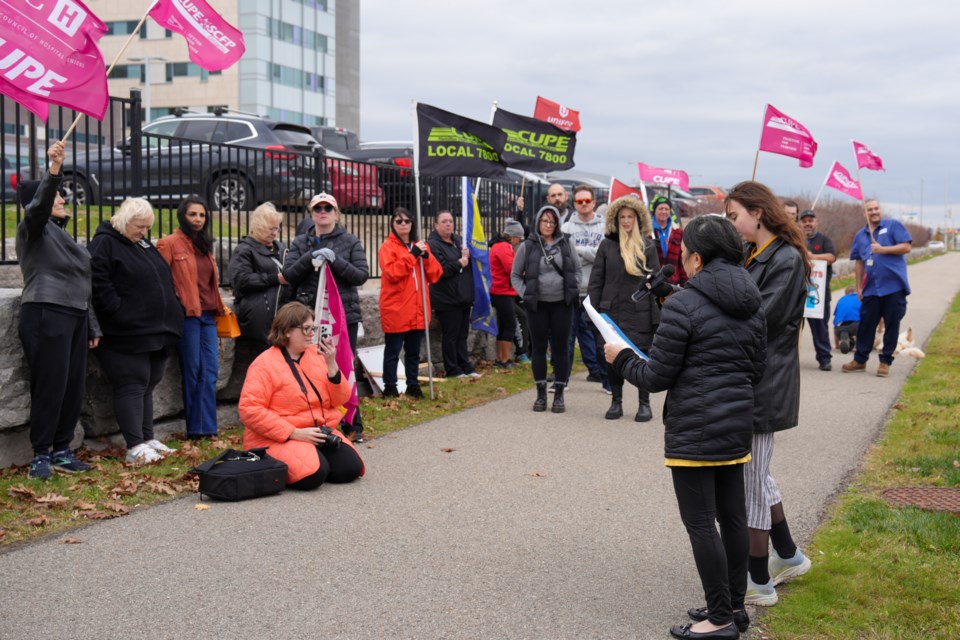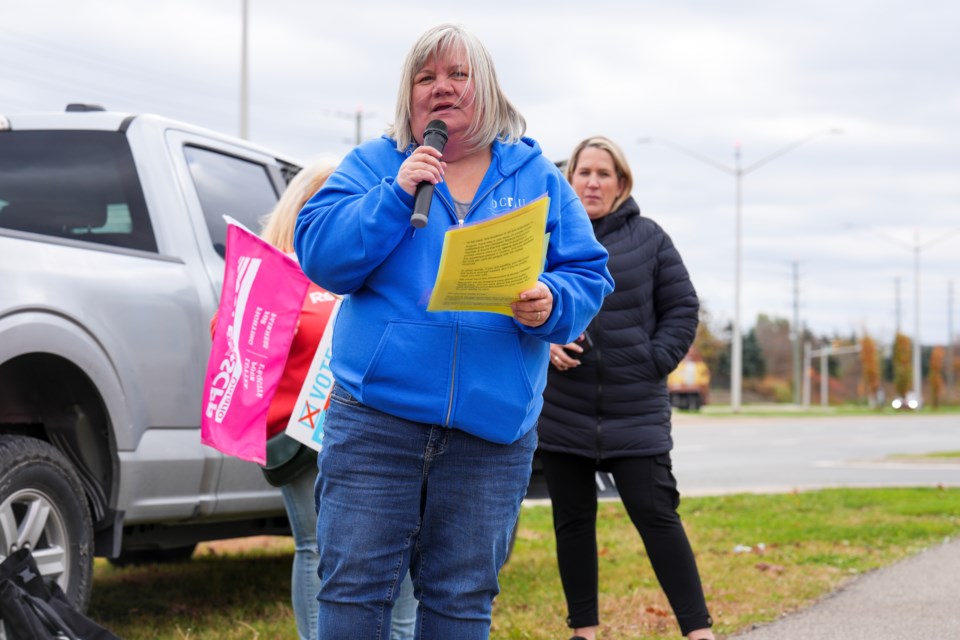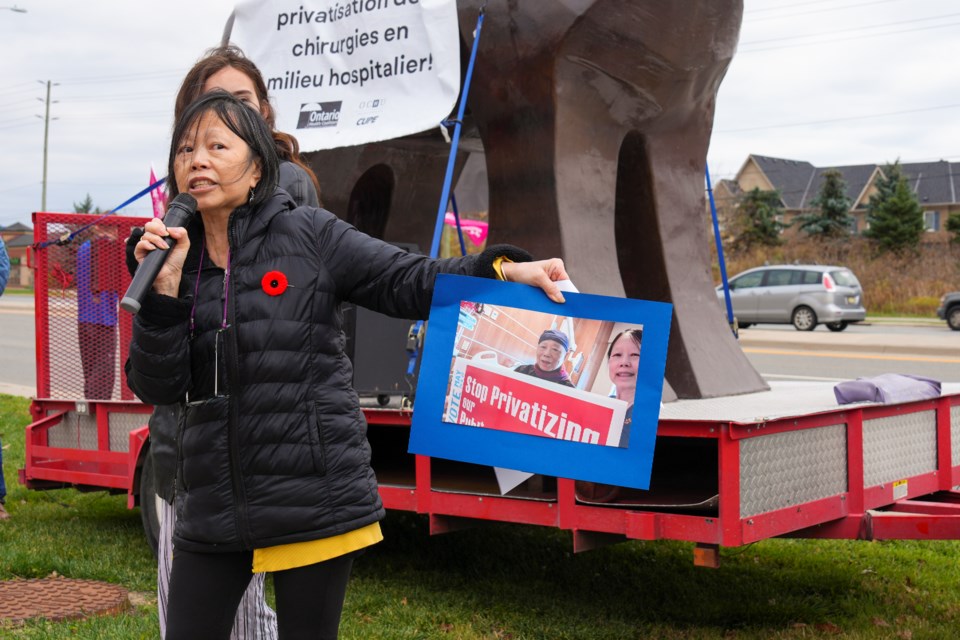A dramatic symbol greeted protesters and rally organizers at Oakville Trafalgar Memorial Hospital’s front gates on Friday: a 15-foot wooden Trojan Horse.
Unveiled by the Ontario Council of Hospital Unions (OCHU-CUPE) and the Halton Health Coalition, an affiliate of the Ontario Health Coalition (OHC), the Trojan Horse symbolizes what organizers call “deception” in the provincial government’s plan to privatize hospital surgeries and diagnostic tests—a "fitting emblem for the union and coalition's protest against such privatization."
Instead, as part of the organizations' five-week tour around the province, the OCHU-CUPE and OHC are urging the Ontario government to revoke private, for-profit licensing and to invest in the province's public hospitals.
They believe this could create 16,000 hospital beds and bring in more healthcare staff, like doctors and nurses, to meet patients' needs.

In May 2023, Ontario passed Bill 60, also known as the Your Health Act, which allows more private clinics to offer OHIP-covered surgeries—a measure the provincial government argues will help reduce procedure wait times.
However, unions, healthcare workers, and Oakville residents at the rally believe these steps toward healthcare privatization ultimately harm the public.

“The funding that the Ford government is giving to private clinics is funding that should go to public hospitals,” said Helen Lee, an OCH member, at the rally.
“Privatization redirects money and staff from public hospitals to private, for-profit clinics,” added OCHU-CUPE secretary-treasurer Sharon Richer, speaking to Oakville News.
“We’re seeing wait times in the public system getting longer due to staff shortages, as these private, for-profit clinics are poaching healthcare workers.”
Richer also noted that private clinics often cater to wealthier patients who can afford to pay out-of-pocket costs for surgeries and diagnostic tests.
"Meanwhile, middle class and lower class people aren't able to pay out of pocket because they're paying for rent because the cost of living is so high," she said.

An August 2024 study by the Canadian Medical Association Journal revealed a 22 per cent raise for Ontario's wealthiest patients to undergo cataract surgeries in private, for-profit clinics. In contrast, the rates of surgeries fell by nine per cent for low-income patients.
Oakville specifically has an aging population which can also suffer the consequences of private healthcare, says Hailey Ford, a member of the Halton Health Coalition.
"People may look at Oakville and think it's just a bunch of rich people. That's not true," she said to Oakville News. "Elderly people cannot afford this kind of healthcare, but they need it."
Earlier this year, Hailey says her grandfather was hospitalized for a near-fatal heart failure.
"He was told that if you come through the emergency room, rather than calling 9-1-1 and being taken in an ambulance, he would have died. He lives five minutes from here," she said. "He was lucky to survive."
Lee says her father, who was 94 when he passed, was being treated at Oakville Trafalgar Memorial Hospital when it was experiencing doctor shortages, which resulted in Lee being in the hospital for nearly 24 hours a day. She also noticed shortcuts with her dad's and other patients' treatments.
"On one visit to the ER, [I found that] my dad's IV bag and antibiotic bag was taped to the wall," which was due to short-staff not being able to find IV poles, Lee said.

But it's not just elderly people in Oakville, whose health are at risk, Ford says. It's everyone.
"I went to high school here, I went to elementary school here and I see a lot more young people with health issues. Everyone is sick, everyone needs care and just because it's Oakville doesn't mean that everyone's rich enough to afford it," she told Oakville News.
"It's sick, it's dangerous and it is going to kill people," Hailey said. "They will be put off by a price tag. They will put off seeking help until it is too late."
